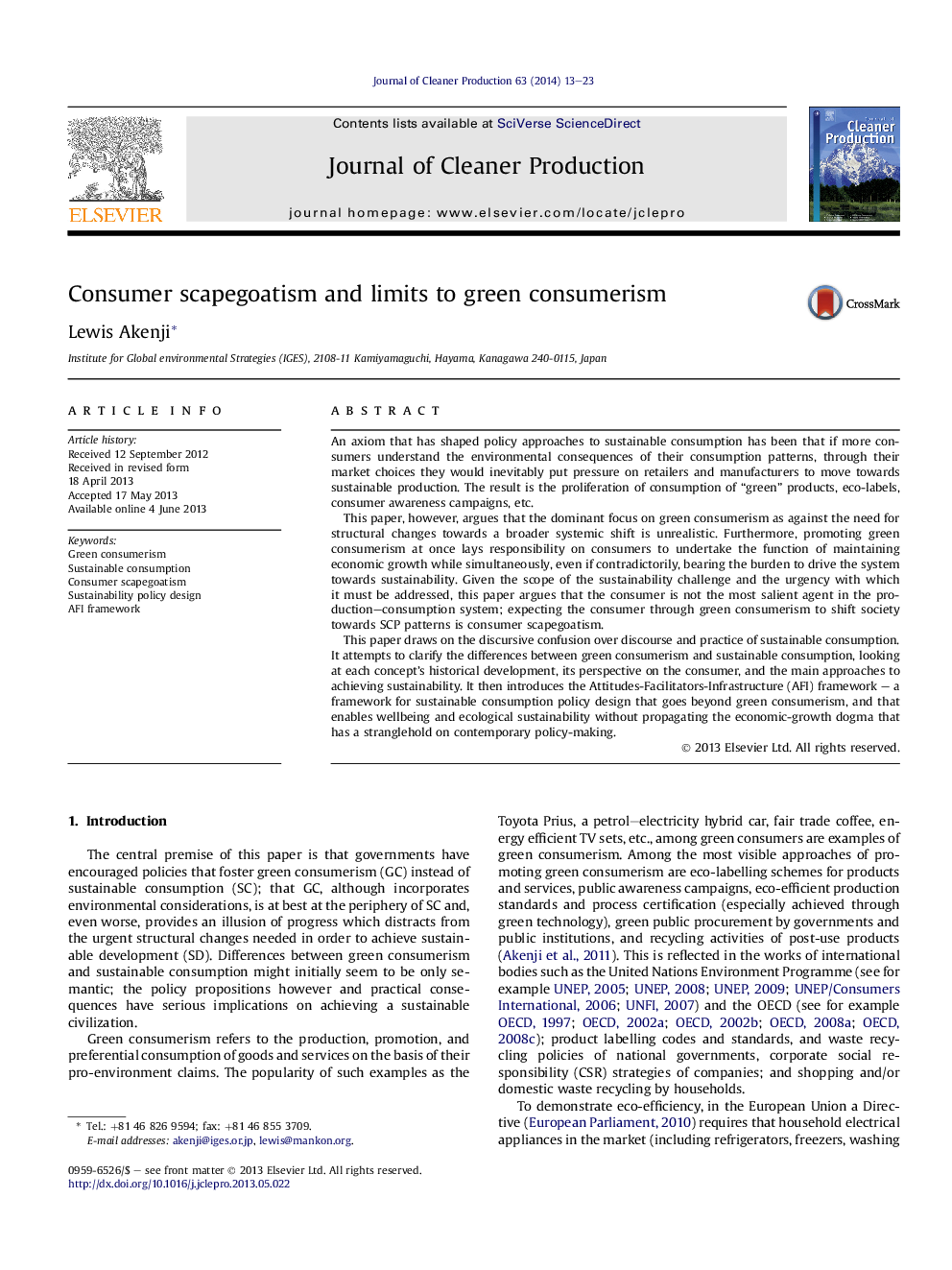| کد مقاله | کد نشریه | سال انتشار | مقاله انگلیسی | نسخه تمام متن |
|---|---|---|---|---|
| 1745094 | 1522183 | 2014 | 11 صفحه PDF | دانلود رایگان |
An axiom that has shaped policy approaches to sustainable consumption has been that if more consumers understand the environmental consequences of their consumption patterns, through their market choices they would inevitably put pressure on retailers and manufacturers to move towards sustainable production. The result is the proliferation of consumption of “green” products, eco-labels, consumer awareness campaigns, etc.This paper, however, argues that the dominant focus on green consumerism as against the need for structural changes towards a broader systemic shift is unrealistic. Furthermore, promoting green consumerism at once lays responsibility on consumers to undertake the function of maintaining economic growth while simultaneously, even if contradictorily, bearing the burden to drive the system towards sustainability. Given the scope of the sustainability challenge and the urgency with which it must be addressed, this paper argues that the consumer is not the most salient agent in the production–consumption system; expecting the consumer through green consumerism to shift society towards SCP patterns is consumer scapegoatism.This paper draws on the discursive confusion over discourse and practice of sustainable consumption. It attempts to clarify the differences between green consumerism and sustainable consumption, looking at each concept's historical development, its perspective on the consumer, and the main approaches to achieving sustainability. It then introduces the Attitudes-Facilitators-Infrastructure (AFI) framework – a framework for sustainable consumption policy design that goes beyond green consumerism, and that enables wellbeing and ecological sustainability without propagating the economic-growth dogma that has a stranglehold on contemporary policy-making.
Journal: Journal of Cleaner Production - Volume 63, 15 January 2014, Pages 13–23
